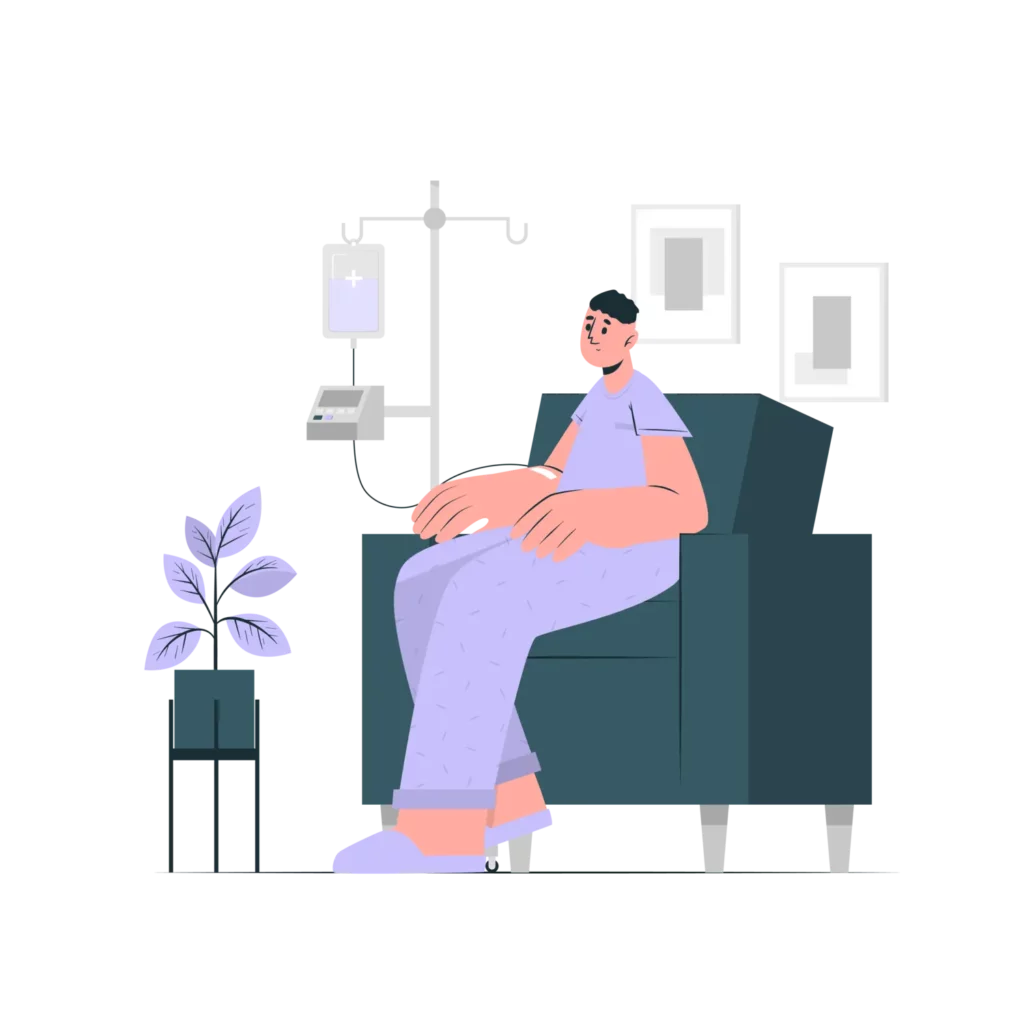Considering infusion therapy? Find out how it works, why it’s being used to heal and what home infusion therapy is doing to revolutionize patient care for chronic disease.
Modern medicine continues evolving with even newer, more advanced, and even improved methods of curing. Being one of the most modern of the new breed, infusion therapy is a therapy that comforts patients and enhances their health afflicted with serious or complex health ailments. Whether given in the hospital or even at home, this kind of therapy infuses medicine directly into the blood so that the body heals instantly with the aid of treatment.
The following are four things you need to know about infusion therapy, including its advantages, uses, and how it is revolutionizing the administration of chronic care.

1. Infusion Therapy Can Cure Many Life-Threatening Diseases
What most people immediately think of when they are informed of “infusion therapy” is chemotherapy or staying in the hospital. It is far more than that, however. Infusion therapy is most commonly prescribed to patients who are either ill enough they cannot swallow medication or require it to take effect more quickly. Drug bypasses the system directly into the bloodstream when given intravenously (IV) and thus makes it quicker and more reliable to absorb.
Infusion therapy can be beneficial in the treatment of different medical illnesses such as:
- Autoimmune disease: Ulcerative colitis, lupus, rheumatoid arthritis, and Crohn’s disease
- Neurological disease: Myasthenia gravis, multiple sclerosis (MS)
- Acute Infection: Other resistant antibiotic-reliant infections and sepsis
- Chronic headache or migraine: As an adjunct to fibromyalgia management or refractory headache
- Immunodeficiency: IVIG (intravenous immunoglobulin) therapy for immune system enhancement
With proper referral and diagnosis, patients can be assisted with specialist treatment that can achieve maximum outcomes and remove symptoms better than oral medicine in most instances.
2. You Do Not Always Need a Hospital – You Can Have Infusion Therapy at Home or Clinics
One of the biggest misconceptions about injection infusion therapy is that it will only be administered in hospitals. Now, patients are being offered a whole variety of options when it comes to receiving this type of therapy. Infusion centers and even home infusion are available, with safe but convenient options.
Clinic-Based Infusion:
Outpatient infusion facilities provide a peaceful, professional setting in the hands of health professionals. Clinics are less hospital-like compared to hospitals and allow patients to work, read, or sleep while under treatment.
Home Infusion:
Mobility-handicapped or inactive patients can have the luxury of professionally qualified nurses administering medication in the comfort of their own home through home infusion therapy. Equipment is delivered to the patient, and rest is left to the care professionals.
This kind of decentralization has not only been a respite for patients but has also cut costs dramatically and alleviated pressure on overcrowded hospitals.
3. Infusion Therapy Places High Emphasis on Patient Comfort and Safety
Whether you’re receiving treatment in a clinic or at home, patient comfort and safety are at the core of infusion therapy. Each infusion session is carefully managed by trained medical professionals, including nurses and pharmacists, who ensure correct dosage, monitor reactions, and provide ongoing support.
Some of the amenities that prioritize comfort include:
- Quiet rooms and comfortable chairs at clinics
- Flexible schedules for parents or working adults
- Patient-facilitative nurses to guide patients through therapy step by step
- Side effect tracking and immediate intervention for complications
Home infusion patients also typically have access to 24/7 hotlines, so they never feel like they must do it alone with issues or side effects.
4.How a Coordinated Care Team Supports Your Treatment Plan
Infusion care is never one service. Making it better are advanced care teams that work directly with your main doctor, specialists, insurer, and pharmacy. This system helps to ensure that every aspect of the treatment—medical, administrative, and financial—is completed properly.
Following is what an average infusion care team does to help:
- Reviews prescriptions and tailors treatment programs
- Launches medications and devices to your home
- Coordinates times of appointments and schedules them according to your convenience
- Coordinates medicines
- Monitors progress and modifies treatments when needed
- Coordinates insurance authorizations and billing
The shared care model facilitates the infusion process, especially for patients with comorbidities or long-term medication therapy.
Bringing Relief, One Step Closer
Infusion therapy is a very secure, effective and up-to-date method for treating both long-term and short-term illness. It is a quick and simple treatment leading towards optimised outcomes. For someone new to treatment or looking for a solution to this illness, understanding the key information about infusion therapy helps one take control of their own health.
If any advice is needed about infusion theory, you can easily talk to a qualified professional. With proper medical care, support and a personalised treatment plan, you can take significant steps toward a healthier and more comfortable life


